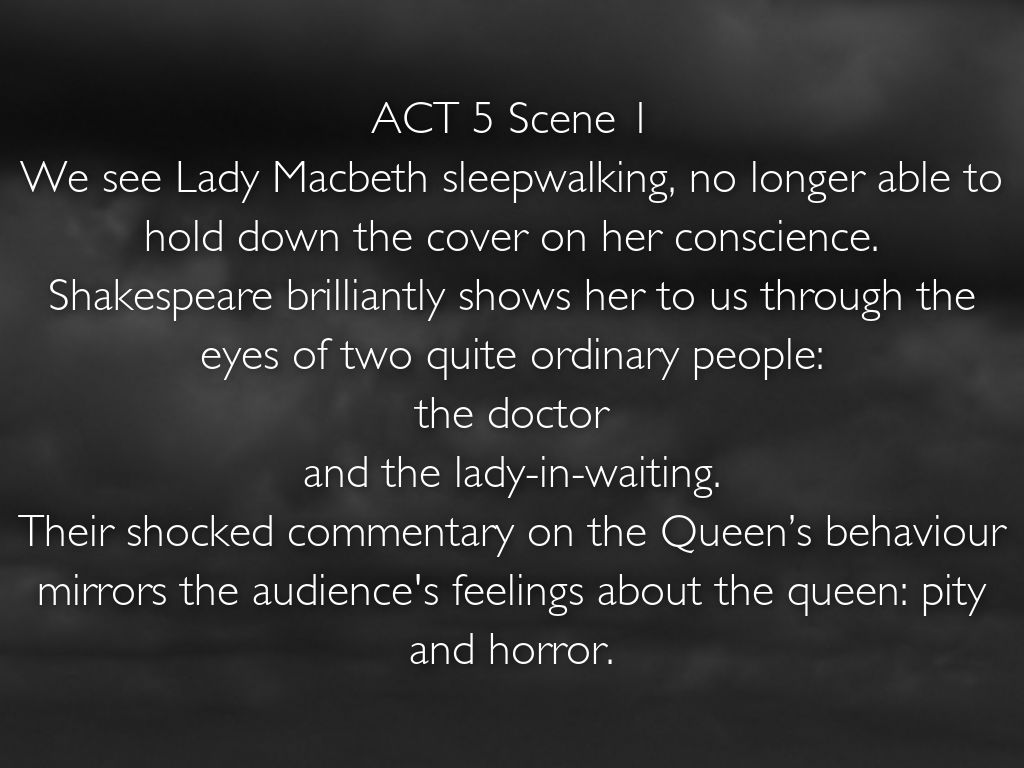

Yet Macbeth is unable to quell his choice for power. This is Macbeth’s first lengthy soliloquy and therefore the audience’s first peek inner his mind. In Act 1, scene 7, for instance, Macbeth muses on Duncan’s many properly qualities, reflects that Duncan has been type to him, and thinks that possibly he ought not to kill his king. Just as Lady Macbeth will prove to be the antithesis of the right wife, Macbeth proves to be a totally disloyal subject. The plot of the play hinges on Macbeth’s betrayal of Duncan, and, ultimately, of Scotland. Unlike Macbeth, she seems solely worried with immediately power.Ī subject’s loyalty to his king is one of the thematic concerns of Macbeth. He sees Lady Macbeth’s boldness and masculinity as heroic and warriorlike, at the same time as Lady Macbeth invokes her intended masculine “virtues” for dark, merciless purposes. But the remark also shows that Macbeth is considering his legacy. Since Macbeth succumbs to Lady Macbeth’s wishes right now following this remark, it appears that he's complimenting her and maintaining her belief that braveness and brilliance are masculine traits. Macbeth exclaims that Lady Macbeth ought to “ring forth men-children best” due to the fact she is so formidable and courageous (1.7.72). Throughout the play, every time Macbeth shows signs and symptoms of faltering, Lady Macbeth implies that he is much less than a guy. When, in Act 1, scene 7, her husband is hesitant to homicide Duncan, she goads him through thinking his manhood and via implicitly comparing his willingness to carry thru on his purpose of killing Duncan with his capability to perform a sexual act (1.7.38–41). These remarks show up Lady Macbeth’s notion that manhood is described by means of homicide.

In the soliloquy, she spurns her feminine characteristics, crying out “unsex me here” and wishing that the milk in her breasts would be exchanged for “gall” so that she may want to murder Duncan herself. Her soliloquy in Act 1, scene five, starts the play’s exploration of gender roles, especially of the value and nature of masculinity. She is well aware about the discrepancy between their respective resolves and understands that she can must control her husband into appearing on the witches’ prophecy. Her violent, blistering soliloquies in Act 1, scenes five and 7, testify to her strength of will, which absolutely eclipses that of her husband. These scenes are dominated with the aid of Lady Macbeth, who is probably the maximum memorable character within the play. She tells her husband to have patience and to leave the plan to her. Macbeth tells his spouse that Duncan plans to depart the following day, however Lady Macbeth pronounces that the king will in no way see tomorrow. Macbeth enters, and he and his wife speak the king’s drawing close visit. She resolves to position her herbal femininity aside in order that she will be able to do the bloody deeds vital to capture the crown. As she awaits her husband’s arrival, she offers a well-known speech in which she begs, “you spirits / That have a tendency on mortal thoughts, unsex me here, / And fill me from the crown to the toe top-full / Of direst cruelty” (1.five.38–41).

A messenger enters and informs Lady Macbeth that the king rides in the direction of the castle, and that Macbeth is on his way as well. She resolves to convince her husband to do some thing is needed to seize the crown.
#MACBETH ACT 5 SUMMARY FULL#
Lady Macbeth murmurs that she knows Macbeth is ambitious, however fears he's too full of “th’ milk of human kindness” to take the steps necessary to make himself king (1.five.15). The letter proclaims Macbeth’s promotion to the thaneship of Cawdor and details his assembly with the witches. In Inverness, Macbeth’s castle, Lady Macbeth reads to herself a letter she has acquired from Macbeth. That tend on mortal thoughts, unsex me here,Īnd fill me from the crown to the toe top-full


 0 kommentar(er)
0 kommentar(er)
